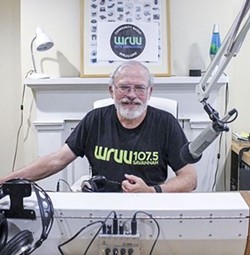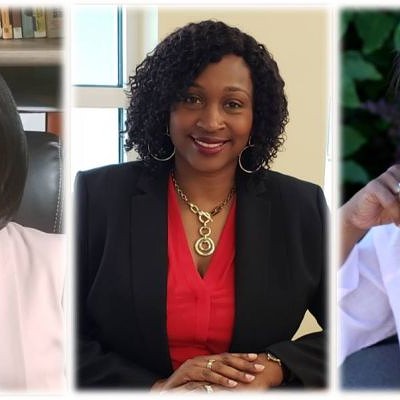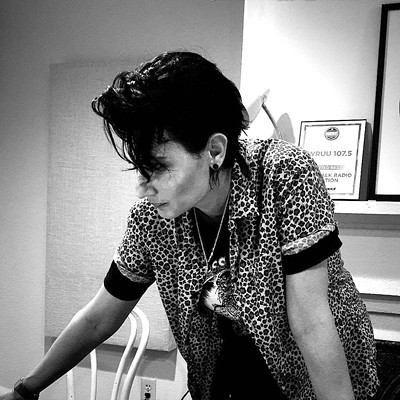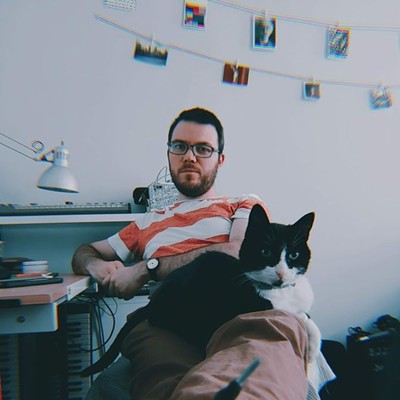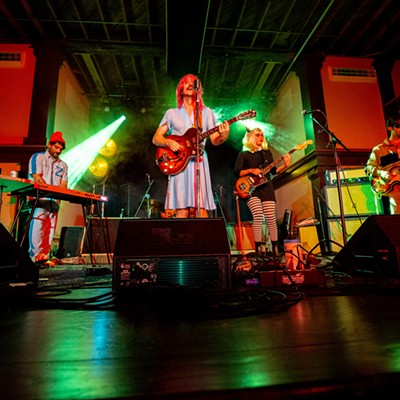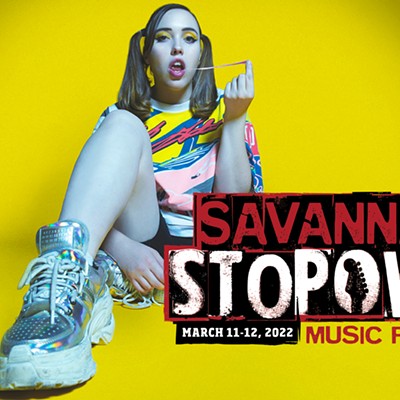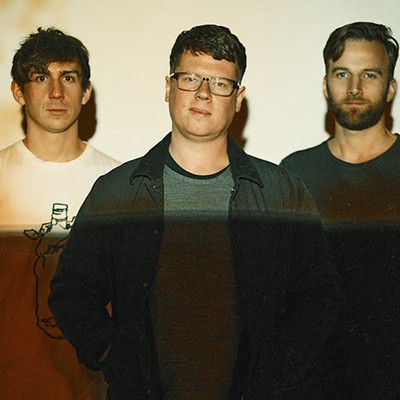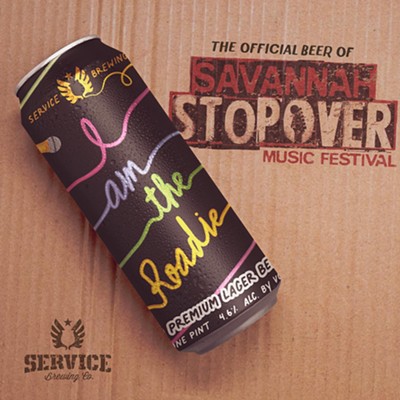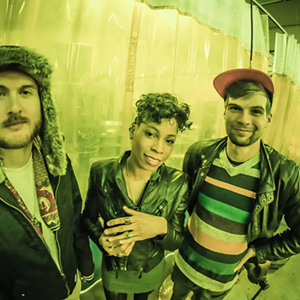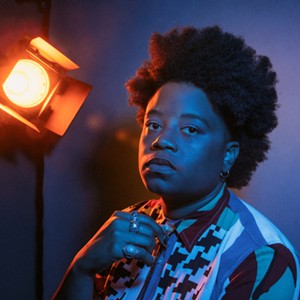AS PART of our new series profiling WRUU show hosts, this week we talk to WRUU Studio Manager and host Dave Lake, who has also been instrumental in the expansion of this nonprofit, all-volunteer local community radio station.
What in your background or interests led you to the role of managing WRUU?
Back in the late 70s I was an on-air personality and the classical music coordinator at KTXT-FM in Lubbock, Texas, and then moved on to host a show on WKNC in Raleigh, NC.
I went on to another profession and eventually become a physical therapy academic administrator, first in Boston at Northeastern University and then coming to Savannah as the founding chair of the physical therapy program at the then-Armstrong State College. This gave me both the on-air skills and administrative skills.
In the summer of 2015, I submitted a proposal for what is my Savannah Music Local and Sustainable show, which is interviews with and the music of local musicians and presented the show at a meeting in July. By December, I had not heard anything about the submission show. I contacted the station and learned that the program director and the associate directors for music and for talk programming had all quit.
I got together with a couple of other people who had submitted programs, Doug Johnson and Louis Clausi. We started learning the board and computer programs that were purchased to run automation and other programming at the station.
I loaded up all the music that I had to create the Americana, classical, jazz, soundtracks, world, classic rock and alternative rock for our automation programming.
And we started to stream in February 2016. In January and February, we tried to contact all of the people who had submitted shows back in 2015, but most of the people were so discouraged that they had not been contacted during 2015 about their shows, they had made other commitments or were no longer interested.
So we started with 7 hosts who had submitted programs and the rest of the 24 hours was automation. We wrote a new manual, and we developed a program development process. Contacted various media sources to promote submission of new programs.
We continued to raise money to be able to put an aerial up and install the computers and other equipment to be able to broadcast. Because I had retired in the Summer of 2015, I could spend more time in the studio than anyone else. Learned all the systems and worked with the fund-raising team and the infrastructure team.
Because I was spending so much time at the studio and coordinating activities between the teams, I was appointed to the position of studio manager. Remember, however, that I had signed on to be a host of one show. But by the time we went on the air, I was hosting 3 shows and had assumed the role of studio manager.
In the year from the time we started streaming, we raised enough money so we could install our broadcast antenna, and went on-air in March 2017. At that time we had about 35 hosts. Now we have between 60-70 hosts and producers.
What particular challenges and rewards have you experienced running an all-volunteer operation?
The main challenge is maintaining staffing for live programming. We have presently 60-70 hosts and producers, but if you count everyone who has served in that role during our 4 years of streaming and 3 years on the air, we have had over 120 people who have been hosts and producers.
Yes, my list of active hosts and producers is about as long as previous hosts and producers. But I understand. Life intervenes and they have to suspend their programs. On the other hand we have had hosts who have continued their shows since when they joined when we were early in our streaming back in 2016.
Another challenge is making sure hosts can meet their show commitments. Work changes, family illness, car broken down, etc. and hosts miss their shows. On the other hand we have hosts who have met their show commitments come hell or high water, through pandemics and hurricanes.
The greatest joy I have is giving people the chance to realize a dream. They have listened to radio and dreamed that they could be on radio. And we are able to help them fulfill that dream.
I have such joy to see their smiles when they are on the air and sharing the music that they love and discussing issues that are important to them.
You have quite a full plate hosting three shows—tell us a bit about each one, and your goals with each.
The show that I proposed back in Summer of 2015 was Savannah Music Local and Sustainable. This show is a 1 hour pre-recorded show that features interviews with and the music of local musicians.
I love this show because I love talking to musicians about their process of writing music and/or performing music. I have interviewed rock, folk, jazz, rap and classical musicians.
Savannah is such an awesome musical town. Now after over 4 years of shows with only a few encore episodes and interviewing only a very few musicians more than once, I have to reflect back on the meeting where I proposed this show.
During that proposal meeting, the following statement and question were asked, “Now you realize a weekly show means interviewing about 50 musicians a year. Are there 50 musicians in Savannah?” So with close to 200 shows, I can clearly say – yes there are more than 50 musicians in Savannah.
I saw that we needed more live programming so I started Evening Eclectic the first week we started streaming in February 2016. Evening Eclectic is anything I want to play. This is a fun show.
As you can tell my musical tastes run the full range of genres. So I get to include multiple genres in a single show or a single genre. All of the episodes of Evening Eclectic are really good.
But some of these episodes include ones that I am truly very proud of. For instance, a few weeks ago I did a show called “From their Lips to Your Ears” which featured an eclectic mix of vocal music from jazz, modern classical and off-beat pop. On what other radio show are you going to hear Bec Plexus, Cory Smythe, Anahita Abbasi, Björk, Meredith Monk, Shara Nova, Fiona Apple, Dirty Projectors, My Brightest Diamond, Roomful of Teeth and the Silk Road Ensemble on the same episode?
Contemporary Classics started with programming concert/art music from the 20th and 21st centuries. And you immediately say isn’t classical music Mozart, Beethoven and Brahms and they are all dead. And I say no!
There are composers who are living and breathing today, and there are musicians and musical groups who do nothing but contemporary classical music. And this is what this show is all about.
I regularly go to festivals of contemporary classical music, I have connections with three record labels that regularly release contemporary classical music and I have friends who are composers and musicians. So the show has evolved into having interviews with composers of classical music every other week.
But in addition to these shows I am the voice of both Jazz Brunch every day except Friday around the noon hour and Classical Eclectic on weekends.
I regularly provide more music for these automated shows. I will out announce each tune on both of these shows, which requires a couple days every other month doing voice work.
And of course I am studio manager. So every time I say I am “retired,” my wife starts laughing. I am working as much now as when I was employed, but I love it.
I have never enjoyed life as much as I do now, and my payment is not money, but joy.
In what direction would you like to see WRUU move forward? Where do you see the station in five years?
First, I would like to see a paid person replace me as studio manager. We are the only community radio station in the country that does not have any paid staff.
Second, I would love to have a production/training studio alongside our broadcast studio.
Third, I would like to see us having investigative reporters who can spend time meeting with city and state leaders investigating issues that are critical to local and state residents.
Fourth (or maybe it should be first), we would like a to have a bathroom in the studio area because to go to the bathroom we have to leave the studio itself and go to the Unitarian Church next door.
Fifth, the ability to do remote broadcasting so we could do broadcasting live from events around the city.
What makes the ideal WRUU board/show host?
Enthusiasm is the number one criteria for a host. We look for a person who loves a musical genre, or loves a topic that they wish to talk about.
Dedication is also a factor. We are looking for hosts who are willing to dedicate the time to prepare and deliver a show on a weekly basis.
Computer and technological skills are very helpful. Working the board and computer software to do a show is not rocket science, but some hosts have real problems because of their low level of technology skills.
How has Savannah itself—its community, history, politics, culture, etc.—influenced the formation and content of the station?
WRUU is Savannah and Savannah is WRUU. All of our hosts live and work in the Savannah area.
Our talk shows focus on issues that are important to Savannah residents, and in many cases the focus is on local issues, politics and the arts. Music programming is centered on what is not available locally on the radio such as lesser heard contemporary alternative rock, rockabilly, Irish music, jazz, contemporary classical music, lesser heard music from 60s, 70s, 80s, 90s and 00s, reggae, punk rock, ambient, electronic and exotica.

